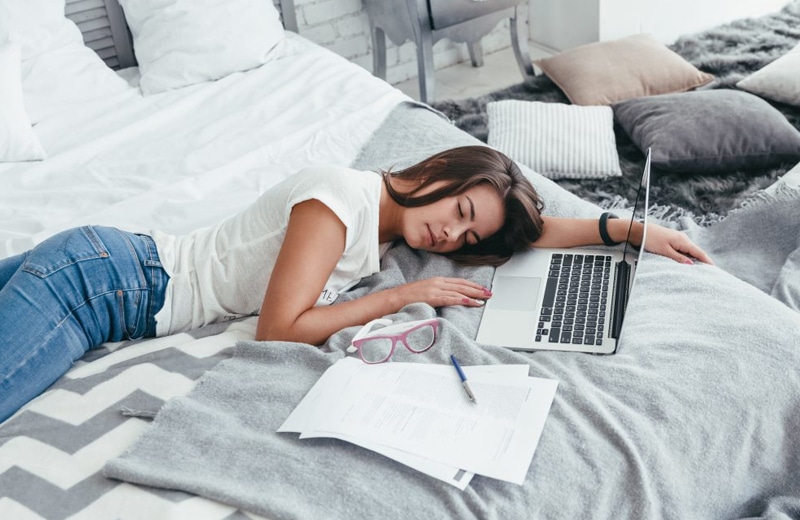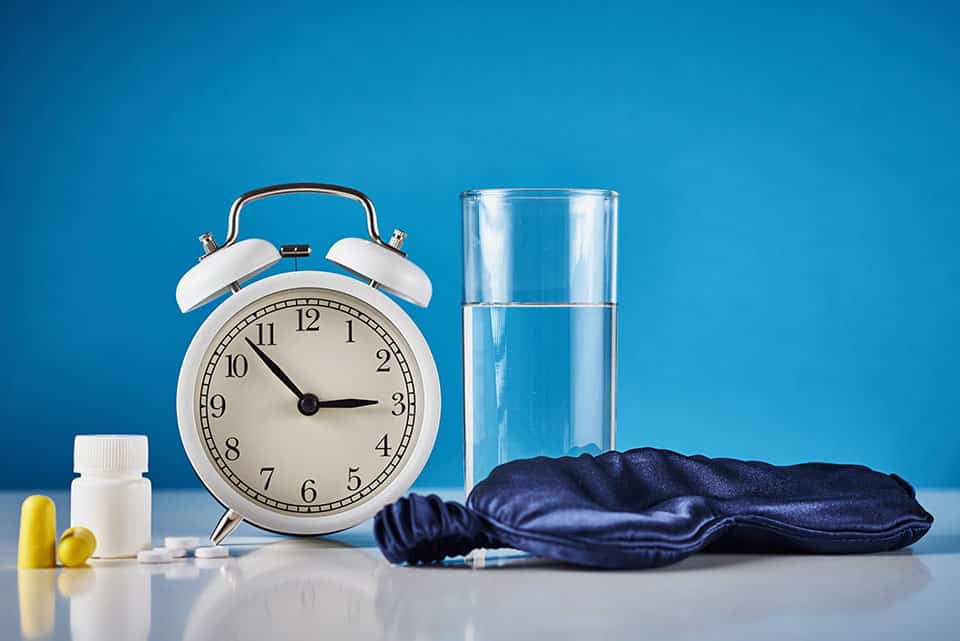
Methodology
2,000 surveys were fielded between April 10-18, 2019 among a representative sample of U.S. adults (age 18+), using a questionnaire lasting approximately 15 minutes. Sample size provides a confidence interval of ±2.19% at 95%. The sample was provided by Dynata, one of the largest online sample providers in the country.
Respondent Profile
| Gender | % | Age | % | Generation | % | Region | % | |||
| Male | 49% | 18-24 | 14% | Gen Z (18-22) | 8% | South | 37% | |||
| Female | 51% | 25-34 | 19% | Millennials (23-38) | 32% | Midwest | 23% | |||
| 35-44 | 18% | Gen X (39-54) | 28% | Northeast | 21% | |||||
| 45-54 | 17% | Boomers (55-73) | 27% | West | 19% | |||||
| 55+ | 32% | Silents (74+) | 5% |
Sleep Index
Analysis was conducted to establish a Sleep Index (SI) that can be used to track America’s sleep quality over time. The SI is calculated using the following questions:
Q2. On average, how would you describe your sleep within the past two weeks?
| Excellent | Very Good | Good | Fair | Poor |
| 5 | 4 | 3 | 2 | 1 |
Q7. Within the past two weeks, how often have you felt the following when you wake up in the morning?
| Frequently
(10 to 14 times) |
Often
(6 to 9 times) |
Occasionally
(3 to 5 times) |
Rarely
(1 to 2 times) |
Never | |
| Tired (want to continue sleeping) | 1 | 2 | 3 | 4 | 5 |
| Rested/refreshed | 5 | 4 | 3 | 2 | 1 |
The multiplicative index was scaled so the average score was 100. The index was used to create three groups, as depicted below, for analysis purposes.
| All Adults | ||
| Poor Sleepers
(SI < 90) |
Average Sleepers
(SI ˃ 90 and SI < 110 |
Excellent Sleepers
(SI > 110) |
| 56% | 11% | 33% |
Work and Sleep Research Findings
According to our survey, U.S. adults say they need 7.18 hours of sleep on average a night to feel productive at work the next day. However, people who work don’t get this amount of sleep.
- Employed adults sleep an average of 6.84 hours per night
- More than one-third of them (41%) get less than 7 hours of sleep per night
- Over half of them (54%) often or frequently wake up feeling tired
- Employed adults are less likely to be “excellent sleepers” than the adult population at large.
| Poor Sleepers
(SI < 90) |
Average Sleepers
(SI > 90 and SI < 110 |
Excellent Sleepers
(SI > 110) |
|
| All Adults | 56% | 11% | 33% |
| Employed Adults | 57% | 14% | 29% |
The State of America’s Sleep survey suggested that work-related circumstances correlated with poor sleep. Employers who develop strategies to alleviate these work-related stressors should expect a positive impact on their employees’ sleep and increased productivity. Alternatively, employees who suffer work-related stress can change employers and seek a work culture that is more conducive to better sleep, improving their productivity by the same token.
Work-Related Factors That Impact Employees’ Sleep Negatively
- Pressure at work
- Employees who agree (somewhat or completely) that they are under pressure at work represent 44% of poor sleepers/30% of excellent sleepers. (Workers who are poor sleepers are 1.5 times more likely to feel under pressure at work.)
- Not feeling valued at work
- Employees who disagree (somewhat or completely) that they feel valued at work represent 22% of poor sleepers/9% of excellent sleepers. (Workers who are poor sleepers are more than twice as likely [2.4] to not feel valued at work.)
- Not enjoying work
- Employees who disagree (somewhat or completely) that they enjoy the work they do represent 18% of poor sleepers/8% of excellent sleepers. (Workers who are poor sleepers are more than twice as likely [2.3] to not enjoy the work they do.)
- Not feeling respected at work
- Employees who disagree (somewhat or completely) that they work in a respectful environment represent 14% of poor sleepers/5% of excellent sleepers. (Workers who are poor sleepers are nearly three times as likely [2.8] to not work in a respectful environment.)
- Not enjoying co-workers
- Employees who disagree (somewhat or completely) that they enjoy their colleagues represent 11% of poor sleepers/5% of excellent sleepers. (Workers who are poor sleepers are twice as likely [2.2] to not enjoy their co-workers.)
- Not working in a friendly environment
- Employees who disagree (somewhat or completely) that they work in a friendly environment make up 12% of poor sleepers/4% of excellent sleepers. (Workers who are poor sleepers are three times more likely to not work in a friendly environment.)
Other factors outside of work also impact employees’ sleep. Employers and employees alike can have an impact on these factors to improve sleep and impact productivity at work. For example, employers who educate staff about ways to improve their sleep and develop strategies to help employees gain better sleep should be rewarded with improved productivity.
Non-Work-Environment-Related Factors That Impact Employees’ Sleep Negatively
- Nightly routines detrimental to sleep:
- Checking social media right before bed (poor sleepers 43%/excellent 36%)
- Watching TV right before bed (poor sleepers 68%/excellent 59%) and/or sleep with the TV on (poor sleepers 32%/excellent 25%)
- Eating a snack right before bed (poor sleepers 21%/excellent 16%) and/or have their last meal one hour or less before bed (poor sleepers 23%/excellent 16%). (Workers who are poor sleepers are 1.3 times more likely to eat a snack before bed and are 1.4 times more likely to have their last meal one hour or less before bed.)
- Not meditating (or praying) right before bed (poor sleepers 15%/excellent 21%). (Workers who are poor sleepers are 1.4 times less likely to meditate/pray before bed.)
- Using over-the-counter or prescription medication to help fall asleep often or frequently (poor sleepers 15%/excellent 8%). (Workers who are poor sleepers are nearly two times [1.9 times] more likely to use medication to help them fall asleep.)
- The absence of leisure activities also impact sleep negatively:
- Employed adults who agree (somewhat or completely) with enjoying the weekend at home and not going out represent 75% of poor sleepers/69% of excellent sleepers
- Employed adults who disagree (somewhat or completely) with enjoying the following hobbies are more likely to sleep poorly:
- Meeting new people (poor sleepers 24%/excellent 16%)
- Exercising (poor sleepers 22%/excellent 16%)
- Participating in sports/competitive activities (poor sleepers 49%/excellent 38%)
- Watching sports on TV (poor sleepers 38%/excellent 25%)
- Watching sports in-person (poor sleepers 37%/excellent 25%)
- Gardening (poor sleepers 41%/excellent 32%)
- Attending live plays/theater (poor sleepers 34%/excellent 23%)
- Attending live concerts (poor sleepers 25%/excellent 19%)
- Participating in sports/competitive activities (poor sleepers 49%/excellent 38%)
Survey Details: Better Sleep Council September 2019



